Into a World of Learning
After a year of remote learning enforced by the COVID-19 pandemic, the start of a new academic year at Qatar Foundation (QF) also brought a welcome sight – students returning to classrooms and lecture halls.
With Qatar’s public health safeguards and vaccination program bringing COVID-19 case numbers down, in-person education began again in various forms across universities at Education City, as hundreds of students experienced the unique environment of knowledge that QF offers for the first time.
Over 3,000 students from more than 100 nations make up the combined student body within QF’s Hamad Bin Khalifa University (HBKU) and its seven international partner universities. And as they commenced or continued their studies at Education City, they did so in the knowledge that, when they graduate, they will be as well-equipped to succeed, contribute, and drive change as any set of young people, anywhere in the world.
After a year of remote learning enforced by the COVID-19 pandemic, the start of a new academic year at Qatar Foundation (QF) also brought a welcome sight – students returning to classrooms and lecture halls.
With Qatar’s public health safeguards and vaccination program bringing COVID-19 case numbers down, in-person education began again in various forms across universities at Education City, as hundreds of students experienced the unique environment of knowledge that QF offers for the first time.
Over 3,000 students from more than 100 nations make up the combined student body within QF’s Hamad Bin Khalifa University (HBKU) and its seven international partner universities. And as they commenced or continued their studies at Education City, they did so in the knowledge that, when they graduate, they will be as well-equipped to succeed, contribute, and drive change as any set of young people, anywhere in the world.
The dawn of a new academic year at QF brings the sense of excitement and possibility that comes from new beginnings – as students start and continue their journey of knowledge and discovery at Education City.
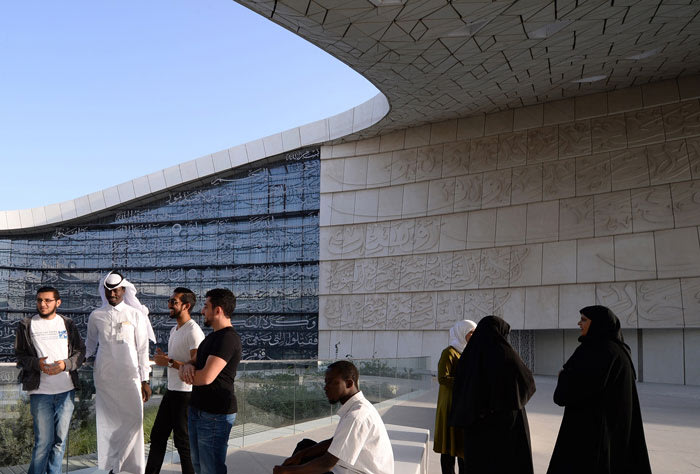
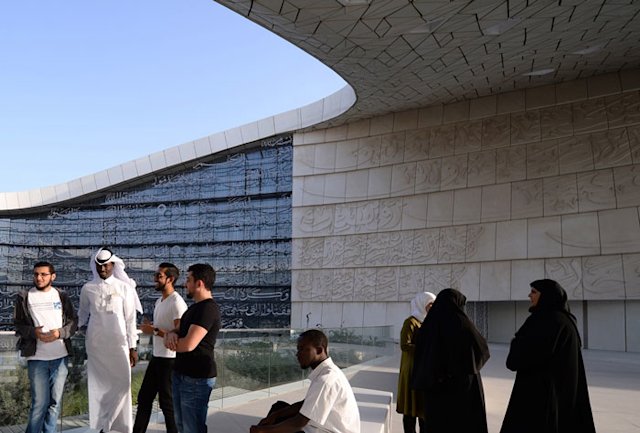
7,460 students of 70 nationalities are enrolled in QF schools
Universities at QF are home to over 3,000 students of more than 100 nationalities
Diversity and Destiny
“What is unique at HBKU is the ability to synthesize information, and utilize it to solve a problem,” said Dr. Michael J. Benedik, Provost of HBKU, as he outlined his vision for the university to its 300-plus new students.
“At HBKU, our expectation is that our students will leave as innovators and problem solvers. Many of them will help solve social problems, while others will leave as entrepreneurs directly impacting the economy both locally and globally.”
At Carnegie Mellon University in Qatar (CMU-Q), the 2021-22 academic year represented the most diverse in the QF partner university’s history - with students hailing from 53 countries, and 40 percent of them being Qatari – as well as its second largest class ever, hosting 439 students including 117 new arrivals.
“It is wonderful to see our student population include Qatari nationals, those from the region, as well as people from much farther afield,” said CMU-Q Dean Michael Trick.
“Education City is a special place to study for exactly this reason: people from across the globe come together with a shared vision of knowledge and understanding.”
“What is unique at HBKU is the ability to synthesize information, and utilize it to solve a problem,” said Dr. Michael J. Benedik, Provost of HBKU, as he outlined his vision for the university to its 300-plus new students.
“At HBKU, our expectation is that our students will leave as innovators and problem solvers. Many of them will help solve social problems, while others will leave as entrepreneurs directly impacting the economy both locally and globally.”
At Carnegie Mellon University in Qatar (CMU-Q), the 2021-22 academic year represented the most diverse in the QF partner university’s history - with students hailing from 53 countries, and 40 percent of them being Qatari – as well as its second largest class ever, hosting 439 students including 117 new arrivals.
“It is wonderful to see our student population include Qatari nationals, those from the region, as well as people from much farther afield,” said CMU-Q Dean Michael Trick.
“Education City is a special place to study for exactly this reason: people from across the globe come together with a shared vision of knowledge and understanding.”
At HBKU, our expectation is that our students will leave as innovators and problem solvers
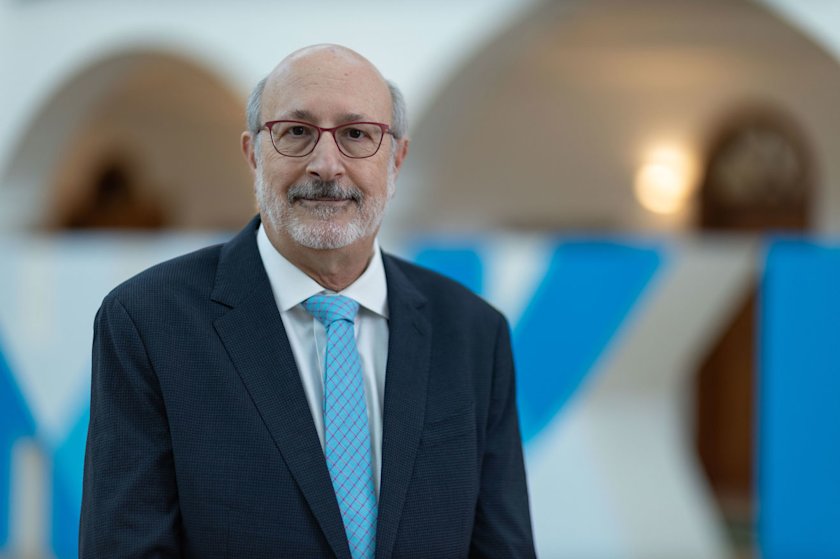
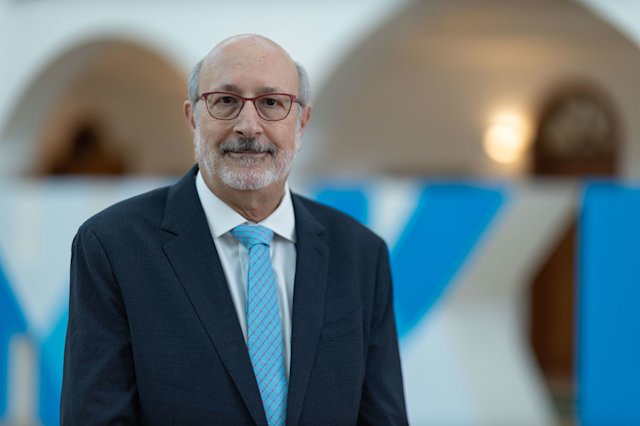
More than 300 students are enrolled across HBKU’s 6 colleges and 34 programs
The Start of a Journey
As QF partner university Virginia Commonwealth University School of the Arts in Qatar (VCUarts Qatar) resumed in-person learning, its Dean, Amir Berbić, told its new students: “The previous year taught us that restrictions cannot curb creativity – on the contrary, VCUarts Qatar seemed to thrive on it.
“I do not doubt for a second that each of you is capable of doing the same. You’ve all worked your way across multiple challenges to earn a place at the region’s topmost art and design school. And now it’s your turn to flourish.”
113 new students from more than 40 countries entered QF partner university Georgetown University in Qatar (GU-Q), with Dr. John J. DeGioia, President of Georgetown University, telling them: “You represent a great hope for our world – we look forward to joining you on the extraordinary journey ahead.”
And at Northwestern University in Qatar, also a QF partner university, its largest and diverse class – comprising more than 130 students spanning nearly 60 nationalities – included its first Serbian student, up-and-coming violinist Sara Mozafari, who said she planned to “use my passion for playing the violin to tell stories of identity and belonging.”
As QF partner university Virginia Commonwealth University School of the Arts in Qatar (VCUarts Qatar) resumed in-person learning, its Dean, Amir Berbić, told its new students: “The previous year taught us that restrictions cannot curb creativity – on the contrary, VCUarts Qatar seemed to thrive on it.
“I do not doubt for a second that each of you is capable of doing the same. You’ve all worked your way across multiple challenges to earn a place at the region’s topmost art and design school. And now it’s your turn to flourish.”
113 new students from more than 40 countries entered QF partner university Georgetown University in Qatar (GU-Q), with Dr. John J. DeGioia, President of Georgetown University, telling them: “You represent a great hope for our world – we look forward to joining you on the extraordinary journey ahead.”
And at Northwestern University in Qatar, also a QF partner university, its largest and diverse class – comprising more than 130 students spanning nearly 60 nationalities – included its first Serbian student, up-and-coming violinist Sara Mozafari, who said she planned to “use my passion for playing the violin to tell stories of identity and belonging.”
You represent a great hope for our world – we look forward to joining you on the extraordinary journey ahead
GU-Q welcomed 113 new students from more than 40 countries
More than 130 students of almost 60 nationalities made up Northwestern Qatar’s latest class
Intertwined for Impact
The unique interconnectivity between QF’s universities – enabled by them standing just yards apart on the same campus at Education City – was again illustrated in August as two of them teamed up for a new course designed to shape better business leaders.
Northwestern Qatar and GU-Q began offering the joint executive education masterclass on effective negotiation and communication, nurturing skills which, according to Jairo A. Lugo-Ocando, Director of Executive and Graduation at Northwestern Qatar, have an importance that “can’t be overstated in the global business environment today”.
The course would be followed the next month by a new joint minor program between the two QF partner universities, focusing on Africana Studies, with GU-Q Dean Ahmad Dallal saying: “The breadth and depth of this minor, and related research, are made possible through the joint efforts of professors who identified a need and creatively leveraged the Education City ecosystem to craft a program that serves the community of learners and the nation as a whole.
“Through our joint efforts, everyone benefits.”
The unique interconnectivity between QF’s universities – enabled by them standing just yards apart on the same campus at Education City – was again illustrated in August as two of them teamed up for a new course designed to shape better business leaders.
Northwestern Qatar and GU-Q began offering the joint executive education masterclass on effective negotiation and communication, nurturing skills which, according to Jairo A. Lugo-Ocando, Director of Executive and Graduation at Northwestern Qatar, have an importance that “can’t be overstated in the global business environment today”.
The course would be followed the next month by a new joint minor program between the two QF partner universities, focusing on Africana Studies, with GU-Q Dean Ahmad Dallal saying: “The breadth and depth of this minor, and related research, are made possible through the joint efforts of professors who identified a need and creatively leveraged the Education City ecosystem to craft a program that serves the community of learners and the nation as a whole.
“Through our joint efforts, everyone benefits.”
GU-Q and Northwestern Qatar offer joint programs in:
- Media and Politics
- Africana Studies
Music for Health
At QF partner university Weill Cornell Medicine-Qatar (WCM-Q), an expert team of music therapists, neuroscientists, physicians, and musicians combined to launch an online course providing training in how to treat health conditions through music.
Music-based interventions are used to treat or manage conditions including speech deficits, neurological diseases such as Parkinson’s and Alzheimer’s, and mental health issues. Tailored to the needs of Middle Eastern populations, the WCM-Q course includes a history of music therapies in the region, and the therapeutic use of traditional Middle Eastern instruments, sounds, and music.
“Because music is not a drug that has the same composition and dosage for each patient, we are witnessing the development of precision music medicine, where the environmental and cultural background of the patients is taken into consideration and a plan tailored to their individual needs is produced,” said Dr. Ghizlane Bendriss, Assistant Professor of Biology at WCM-Q.
Meanwhile, the medical college also announced a new online certificate program that exposed healthcare professionals to the benefits that medical humanities and the arts bring to patient care.
At QF partner university Weill Cornell Medicine-Qatar (WCM-Q), an expert team of music therapists, neuroscientists, physicians, and musicians combined to launch an online course providing training in how to treat health conditions through music.
Music-based interventions are used to treat or manage conditions including speech deficits, neurological diseases such as Parkinson’s and Alzheimer’s, and mental health issues. Tailored to the needs of Middle Eastern populations, the WCM-Q course includes a history of music therapies in the region, and the therapeutic use of traditional Middle Eastern instruments, sounds, and music.
“Because music is not a drug that has the same composition and dosage for each patient, we are witnessing the development of precision music medicine, where the environmental and cultural background of the patients is taken into consideration and a plan tailored to their individual needs is produced,” said Dr. Ghizlane Bendriss, Assistant Professor of Biology at WCM-Q.
Meanwhile, the medical college also announced a new online certificate program that exposed healthcare professionals to the benefits that medical humanities and the arts bring to patient care.
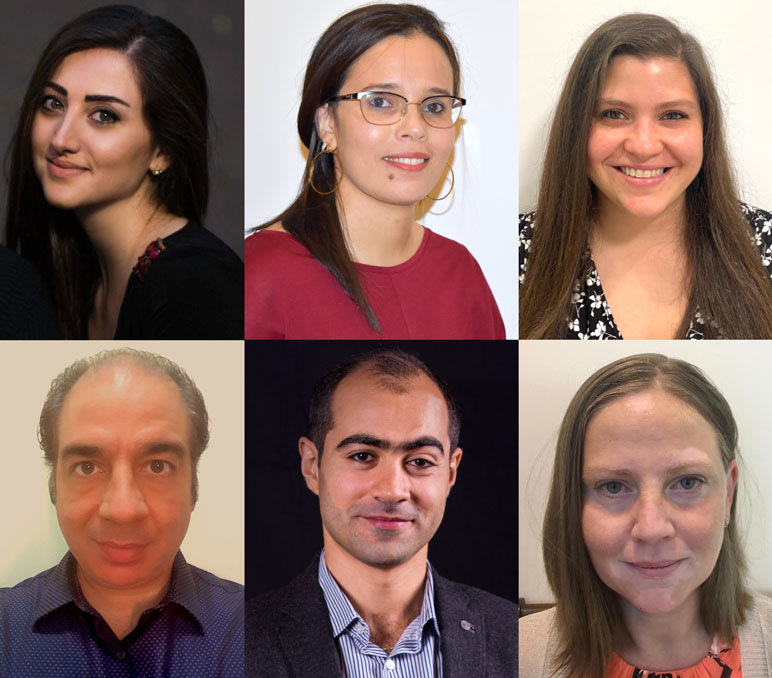
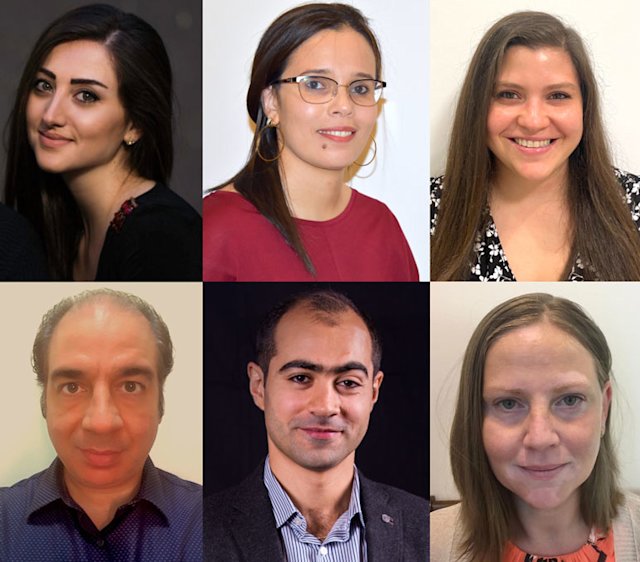
We are witnessing the development of precision music medicine
Cultivating Creators of Technology
While August welcomed students back, in reality learning never stops at QF. And for middle school students from across Qatar, the summer provided them with an opportunity to develop both computing skills – and life skills.
HBKU’s Qatar Computing Research Institute (QCRI) offered innovative learning activities through its Creative Space Summer Camp, a two-week program that teaches K-12 students the fundamentals of web design, coding, and computational thinking, as well as about creativity, innovation, problem-solving, and teamwork.
The students work under the guidance of experienced QCRI scientists, and Ikram Zidani, QCRI’s Creative Space Coordinator, said: “Creative Space empowers young learners to become creators of technology, and to learn how to explore, innovate, and solve problems so they can see meaningful applications of science, technology, engineering, and mathematics in their everyday lives.
“By giving them a fun summer learning experience, we hope to ignite their passion for technology and help them prepare for future career interests.”
While August welcomed students back, in reality learning never stops at QF. And for middle school students from across Qatar, the summer provided them with an opportunity to develop both computing skills – and life skills.
HBKU’s Qatar Computing Research Institute (QCRI) offered innovative learning activities through its Creative Space Summer Camp, a two-week program that teaches K-12 students the fundamentals of web design, coding, and computational thinking, as well as about creativity, innovation, problem-solving, and teamwork.
The students work under the guidance of experienced QCRI scientists, and Ikram Zidani, QCRI’s Creative Space Coordinator, said: “Creative Space empowers young learners to become creators of technology, and to learn how to explore, innovate, and solve problems so they can see meaningful applications of science, technology, engineering, and mathematics in their everyday lives.
“By giving them a fun summer learning experience, we hope to ignite their passion for technology and help them prepare for future career interests.”


We hope to ignite their passion for technology and help them prepare for future career interests
Supporting the Startup Scene
By forming a new partnership with global tech giant Microsoft in August, Qatar Science & Technology Park (QSTP) – part of Qatar Foundation Research, Development, and Innovation – gave the nation’s startups new impetus.
It makes QSTP-incubated startups eligible for the Microsoft for Startups program, which offers cloud resources and industry mentoring, as well as tailored support based on a startup’s particular needs. “Working together, we believe we can provide the ideal platform for Qatar-based startups to accelerate their growth by creating business opportunities for them with our customers, removing entry barriers, and enabling them to reach regional and global markets,” said Lana Khalaf, General Manager of Microsoft Qatar.
The month also saw QSTP and Qatar Development Bank partner to provide startups with support including potential co-investment opportunities; and the start of the fourth edition of the Arab Innovation Academy, the region’s biggest entrepreneurship program, run by QSTP and the European Innovation Academy.
The virtual program equipped undergraduate and graduate students from across the MENA region with the skills and tools required for them to turn an idea into a startup in just 12 weeks.
By forming a new partnership with global tech giant Microsoft in August, Qatar Science & Technology Park (QSTP) – part of Qatar Foundation Research, Development, and Innovation – gave the nation’s startups new impetus.
It makes QSTP-incubated startups eligible for the Microsoft for Startups program, which offers cloud resources and industry mentoring, as well as tailored support based on a startup’s particular needs. “Working together, we believe we can provide the ideal platform for Qatar-based startups to accelerate their growth by creating business opportunities for them with our customers, removing entry barriers, and enabling them to reach regional and global markets,” said Lana Khalaf, General Manager of Microsoft Qatar.
The month also saw QSTP and Qatar Development Bank partner to provide startups with support including potential co-investment opportunities; and the start of the fourth edition of the Arab Innovation Academy, the region’s biggest entrepreneurship program, run by QSTP and the European Innovation Academy.
The virtual program equipped undergraduate and graduate students from across the MENA region with the skills and tools required for them to turn an idea into a startup in just 12 weeks.
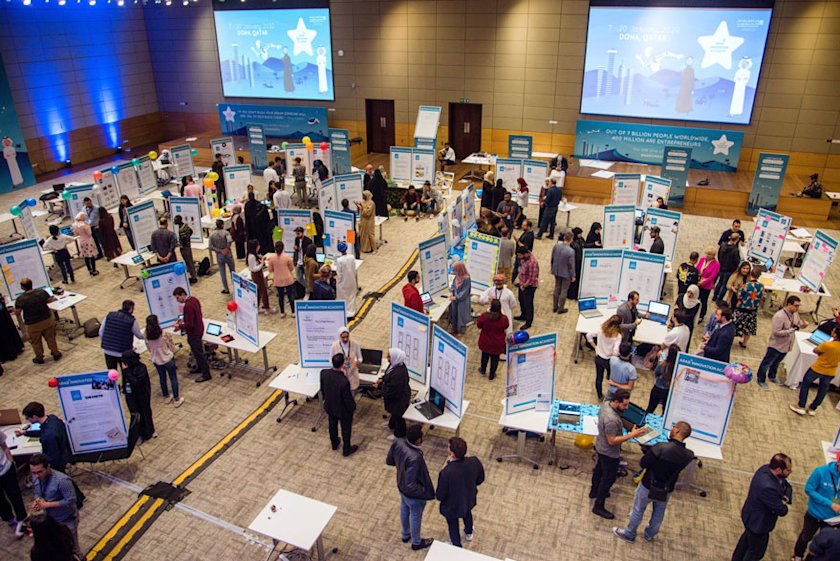
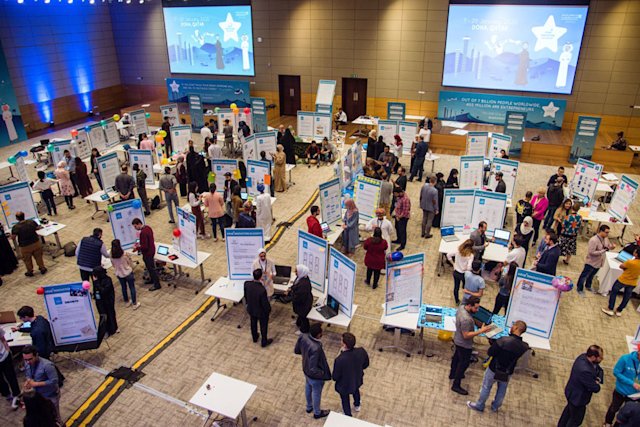
Working together, we believe we can provide the ideal platform for Qatar-based startups to accelerate their growth
Over $1bn has been invested in RDI activities by international companies registered at QSTP
Putting Families First
The Mommy to Be program of Qatar Reads – a QF initiative aimed at nurturing a culture of reading across the nation – provides educational reading materials and a curated reading program for children from birth to two years old. But it also goes further.
One of the program’s key elements is providing health and parenthood support to families, and this aspect of its work was demonstrated in August as Qatar Reads and Hamad Medical Corporation emphasized the need for women in Qatar to speak out if they face mental health challenges – and the fact that help is at hand.
In a session that outlined the psychological and psychosocial support services available to them, Dr. Majid Al Abdulla, Senior Consultant and Chairman of Psychiatry at HMC, said: “Most people can live well and be mentally healthy, as long as they have the opportunity to talk to someone.
“It is really important for people to share their experiences with a psychologist for psychological health problems, and a psychiatrist for more serious mental health issues, so they can get the right help they need.”
The Mommy to Be program of Qatar Reads – a QF initiative aimed at nurturing a culture of reading across the nation – provides educational reading materials and a curated reading program for children from birth to two years old. But it also goes further.
One of the program’s key elements is providing health and parenthood support to families, and this aspect of its work was demonstrated in August as Qatar Reads and Hamad Medical Corporation emphasized the need for women in Qatar to speak out if they face mental health challenges – and the fact that help is at hand.
In a session that outlined the psychological and psychosocial support services available to them, Dr. Majid Al Abdulla, Senior Consultant and Chairman of Psychiatry at HMC, said: “Most people can live well and be mentally healthy, as long as they have the opportunity to talk to someone.
“It is really important for people to share their experiences with a psychologist for psychological health problems, and a psychiatrist for more serious mental health issues, so they can get the right help they need.”
Most people can live well and be mentally healthy, as long as they have the opportunity to talk to someone
Qatar Reads’ Mommy To Be program covers 3 phases:
- Pregnancy
- Postnatal
- Early Years
Raising Autism Awareness
More resources in the Arabic language became available to those with autism in August, thanks to the efforts of graduate students at HBKU’s Translation and Interpreting Institute (TII).
Over the course of a month, the students created Arabic subtitles for more than 60 video clips focusing on issues surrounding autism, all of which have now been included on the LearnAutism website, one of the leading digital libraries of autism content.
They also added new terms and definitions in Arabic to a glossary of autism-related terms, with Dr. Rashid Yahiaoui, Assistant Professor in TII’s Translation and Interpreting Studies Department, saying: “This was an amazing opportunity for our students to put their skills into practice and contribute to raising awareness on the issue of autism in Qatar and beyond.”
And Fatema Ahmad, one of the students who worked on the project, said: “This was a great opportunity to apply everything I have learned until now, to experience what an audiovisual translator might look like in practice, and to expand my knowledge of autism.”
More resources in the Arabic language became available to those with autism in August, thanks to the efforts of graduate students at HBKU’s Translation and Interpreting Institute (TII).
Over the course of a month, the students created Arabic subtitles for more than 60 video clips focusing on issues surrounding autism, all of which have now been included on the LearnAutism website, one of the leading digital libraries of autism content.
They also added new terms and definitions in Arabic to a glossary of autism-related terms, with Dr. Rashid Yahiaoui, Assistant Professor in TII’s Translation and Interpreting Studies Department, saying: “This was an amazing opportunity for our students to put their skills into practice and contribute to raising awareness on the issue of autism in Qatar and beyond.”
And Fatema Ahmad, one of the students who worked on the project, said: “This was a great opportunity to apply everything I have learned until now, to experience what an audiovisual translator might look like in practice, and to expand my knowledge of autism.”
This was an amazing opportunity for our students to put their skills into practice and contribute to raising awareness on the issue of autism
TII provides:
• Translation and Interpreting Services
• Audiovisual Translation Services
• Training Workshops
• Language Programs in Arabic, English, French, German, Italian, Japanese, Korean, Mandarin, Portuguese, Russian, Spanish, and Turkish
Ambassadors for Change
Bringing aspiring young change-makers together with global experts and community leaders, so they can contribute to addressing the greatest challenges facing the world, is the goal of Doha Debates’ Ambassador Program.
And in August, the QF production announced the program’s inaugural participants, with 13 university students from Qatar among the 36 young people from around the world selected for the solutions-focused initiative.
More than 800 people applied to join the Ambassador Program – which is run in partnership with Shared_Studios, a global startup focused on inclusivity and collaboration – from countries ranging from the US, Brazil, and South Africa to China, India, and Malaysia, as well as from nations across the MENA region.
“We look forward to hosting such an impressive and diverse inaugural class of Doha Debates ambassadors,” said Amjad Atallah, Doha Debates’ managing director.
“They will emerge from the program with new skills and knowledge that better position them to be leaders and change-making trailblazers.”
Bringing aspiring young change-makers together with global experts and community leaders, so they can contribute to addressing the greatest challenges facing the world, is the goal of Doha Debates’ Ambassador Program.
And in August, the QF production announced the program’s inaugural participants, with 13 university students from Qatar among the 36 young people from around the world selected for the solutions-focused initiative.
More than 800 people applied to join the Ambassador Program – which is run in partnership with Shared_Studios, a global startup focused on inclusivity and collaboration – from countries ranging from the US, Brazil, and South Africa to China, India, and Malaysia, as well as from nations across the MENA region.
“We look forward to hosting such an impressive and diverse inaugural class of Doha Debates ambassadors,” said Amjad Atallah, Doha Debates’ managing director.
“They will emerge from the program with new skills and knowledge that better position them to be leaders and change-making trailblazers.”
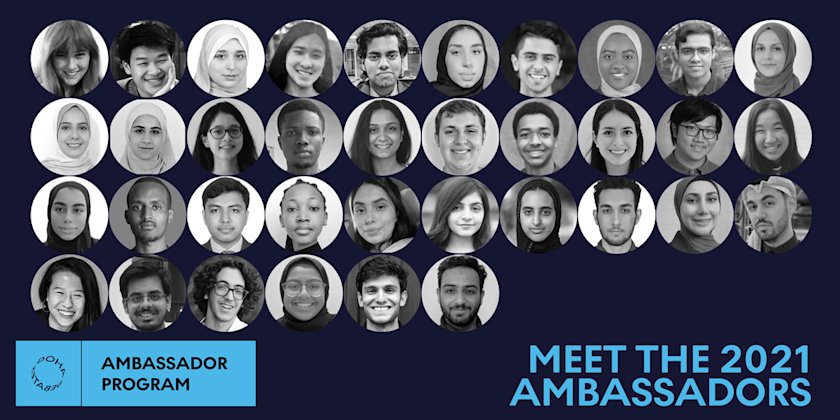
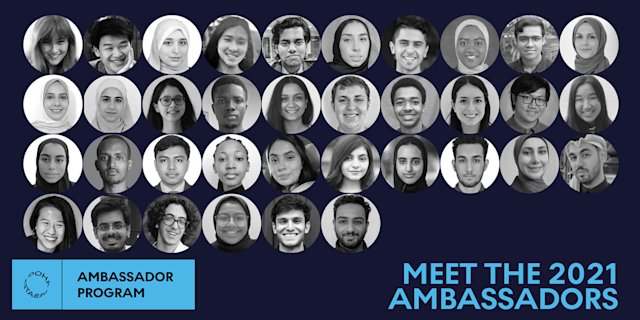
36 young people were selected for Doha Debates’ Ambassador Program from more than 800 applicants
They will emerge from the program with new skills and knowledge that better position them to be leaders and change-making trailblazers